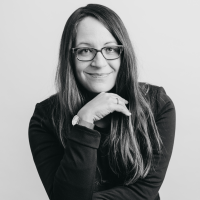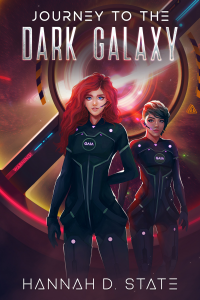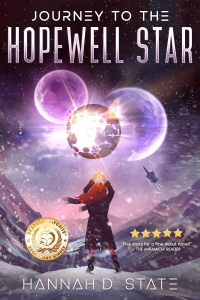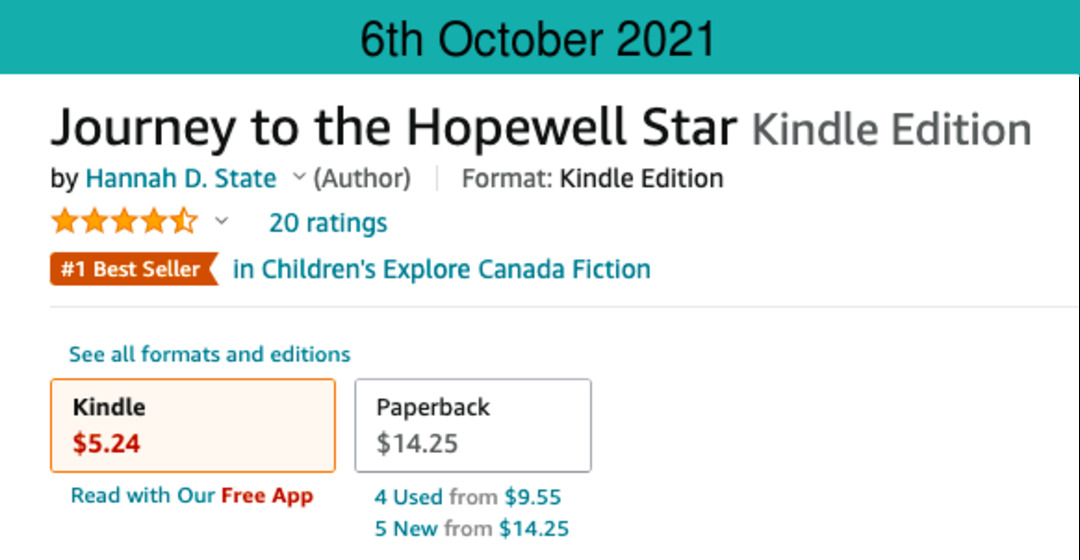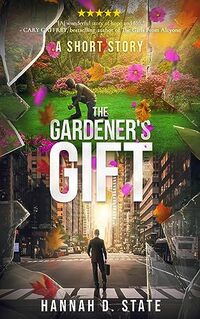Where were you born, and what was your childhood like?
I was born and raised in London, Ontario, along with my younger sister. My father was a part-time university professor of political science and later worked in health research and policy. My mother was a writer.
We lived in the Old North neighborhood in an old Victorian house with creaking wood floors, knob-and-tube wiring, and lead piping (the latter two were eventually replaced). Things were always breaking down, but we managed.
My parents were very loving and supportive and gave me a lot of freedom and independence. They encouraged my creative endeavors. My father taught me to care for the community and the importance of social action. We volunteered a lot for different community organizations. My mother read to me at a young age and inspired my love of reading and writing.
Some of my favorite childhood memories are of acting and performing in plays on stage and in our living room for family and friends. I attended Lester B. Pearson School for the Arts in London, Ontario, and was in the Grand Theatre’s production of A Christmas Carol, as well as H. B. Beal Secondary School’s production of The Secret Garden.
Growing up, my sister and I spent summers at sports and arts camps in the community. My family also rented a cottage near Huntsville, Ontario, where we went swimming, enjoyed bonfires by the lake, and spent time hiking and canoeing.
When I turned ten, my mother became very ill with cancer. It was the 1990s, and treatment options weren’t as effective as they are now. I became emotionally detached and less interested in the arts as a career path. My mom’s sickness opened my eyes to the fragility of life. I lost confidence in myself and my faith. I worried a lot, didn’t trust my body, and couldn’t rely on myself to perform. Despite considering an acting career when I was younger, I worried about my future, money, and health. I wanted to pursue a career that would provide more stability. In high school, I turned to my studies and believed getting good grades would open doors for me in the future.
Of all the places you've lived, which was your favourite? What place do you call home?
That’s a difficult one. I’ve moved a lot over the years, studying and working in different Canadian cities, including Montreal, Toronto, Kingston, Ottawa, London, and Fredericton, each with its own wonderful quirks and personality. I have fond childhood memories of growing up in London, Ontario. My family still lives there, so part of me feels like London is still home.
My husband and I moved to Fredericton, New Brunswick, in 2016, and we now consider it home. We’ve fallen in love with the city and the rest of Atlantic Canada. It’s such a lovely, friendly, and supportive community. Fredericton is a little over an hour’s drive from the ocean. There are gorgeous hiking trails nearby. My husband has developed a green thumb and planted a beautiful garden in our backyard. We’ve literally put down roots here.
Do you often cry when you read books or watch movies?
Yes! How did you know? It happens more often than I care to admit. I can get so caught up emotionally in a book or a movie, and it doesn’t even have to be a sad scene. It can be uplifting, and I’ll find my eyes get watery.
As a teenager, what were you obsessed with?
I was a nerdy teenager, mostly obsessed with getting good grades. And maybe a little obsessed with boys, too. Honestly, at that age, I think I obsessed too much about how I looked and wasted a lot of time worrying about what others thought of me. I think it’s partly why I enjoyed diving into my studies so much or getting caught up in a good movie or book. I could focus on something else. It took me away from my worries, at least temporarily.
What challenges did you face while publishing your first novel?
There were several challenges. It was my first time publishing a novel, and I didn’t want to rush the process or cut corners. It took a lot of time to research the ins and outs of publishing. I had to learn about the various stages of editing, obtaining ISBNs, registering the copyright, choosing a cover designer, hiring a professional formatter, marketing, and more. Unexpected roadblocks came up. My first cover artist wasn’t able to deliver the project, and I was so disappointed. But I learned and adapted and ended up going with a different cover artist, who was a much better fit. Sometimes, these things are a blessing in disguise. You live and learn. I learned a lot throughout the process.
Who inspired the character of twelve-year-old Sam Sanderson?
The characters in my book were formulated from my imagination. However, looking back, I think Sam has a lot of qualities that reflect the strong women in my life and the women I admire.
I wanted to bring to light a character who had different layers and complexities—someone empathetic and introverted but also persistent and sometimes bold and outspoken. Sam is willing to expand her boundaries, question conventional beliefs, and be open to possibilities. She loves to ponder things, and this helps her grow and transform as a character.
Did you expect your novel, Journey to the Hopewell Star to become a bestseller?
No. It was a pleasant surprise.
What is an important misconception so many people have about the sci-fi genre that you would like straightened out?
People sometimes associate the sci-fi genre with long, descriptive texts, lengthy battle scenes, and mostly male characters. But sci-fi is nuanced, and there are so many variations. It can span genres (such as mystery, thriller, action, fantasy, and romance), there can be many diverse characters, and it can appeal to wide audiences. It just depends on what you’re looking for and the type of story the author is interested in telling.
Are there any concepts or ideas you have played around with in your books that may not be familiar to everyone?
I explored the concept of a Dyson sphere in Journey to the Hopewell Star. It’s the idea that a megastructure can be built around a star, allowing a civilization to harness the star’s energy. I don’t want to give any more details or risk giving the story away.
On a normal day, how many hours do you typically spend writing?
From 8 a.m. to 4 p.m., I write technical documents as part of my job as a senior administrator with the federal government. But in terms of creative writing, I’ll spend maybe an hour or two in the evenings and a few hours on the weekends. It’s very sporadic. There are days when I’ll write more, and then sometimes a week goes by when I haven’t touched the manuscript. I think it’s partly why it takes me so long to finish a story—I don’t carve out a regular block of time for it, and there are competing priorities. My day job is what keeps the lights on and food on the table. I hope that changes one day so I can write creatively full-time.
What’s the best way to overcome writer’s block?
I think it’s important to take breaks and get physical activity. Clear your mind. Daydream. Letting your mind wander is important, along with getting plenty of rest. Enjoy a stroll in nature, work out to music, get together with a friend, try a puzzle, or attend an artistic event and get inspired that way. You need to allow yourself the time to just observe and experience the moment, immersing yourself in a different activity. There’s a balance between creating and observing and consuming. You don’t always have to be focused on getting more writing done. If you put too much pressure on yourself like that, it can be detrimental, at least in my opinion. I find that when I take a break and go for a walk in nature and daydream, the creative juices start flowing as my subconscious works to uncover something previously hidden.
What are some new things that you want to experiment with in your future books?
I’m interested in how fast artificial intelligence is advancing and how it’s being used. I’ve been reading a lot of AI-related articles in the news lately. Governments around the world are using technology today for population tracking, and in my opinion, it’s intrusive and frightening. I explore AI further, including the ethics and risks, in my upcoming sequel, Journey to the Dark Galaxy, set to be released later this year. The antagonist is an AI cyborg developed in a lab on Earth. She’s sent on a solo mission to explore habitable planets, but during the mission, she re-writes her coding and creates a rogue army of cyborgs. The book explores themes of personal and collective identity, the fragility of memories and their manipulation, and the risks associated with cloning, isolation, and mental health. It also raises philosophical questions about what it means to be human.
What was the most memorable encounter you've had with a reader/fan?
There have been so many memorable encounters. I am grateful for each one. When I first launched my book at a local bookstore, a kind older gentleman dropped by who also happened to be the security guard at my workplace. I didn’t even realize he knew I was an author. He wanted to buy a signed copy. It was unexpected and thoughtful. There was also a woman who told me how my book helped her get through a difficult time, and she loved it so much she wanted to get a copy for her granddaughter. When someone reaches out and tells you how much they enjoyed your story, it makes all the difference in the world. It brightens my day and really means a lot to me.
How many plot ideas are just waiting to be written? Can you tell us about one?
There are several, but I can’t disclose too many details until they’re published or very near publication. Journey to the Dark Galaxy follows Sam and her friends on another journey, only it’s more mature and darker in tone, with the threat of AI playing a large role. It’s in the formatting stage as I’m writing this and is scheduled to be released in late 2023 if everything goes smoothly. I’m also working on a sci-fi novella about time travel in which the theme of gender plays a major role.
What compelled you to join AllAuthor? What do you think of the website so far?
I was looking for a way to connect with other readers and writers. AllAuthor is a great platform for this. The Magic Tool and Mockup Banner features were a bonus and have helped with digital marketing and promotions. I find the website well-organized and user-friendly.

